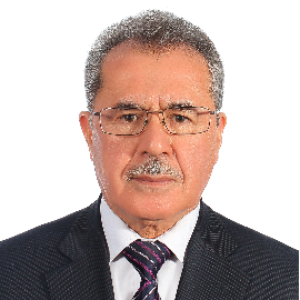Title : Phytochemical studies of the flora of Central Asia, development of cell technologies for endemic species and prospects for the use of plant metabolites in agriculture
Abstract:
Medicinal plants of Central Asia are an extremely important part of the biological resources of the region. The Institute of Chemistry of Plant Substances of the Academy of Sciences of the Republic of Uzbekistan is one of the world leaders in the field of research, creation and introduction into medical practice of medicinal and agricultural preparations of plant nature.
Over the past 2017-2021, the structures of more than 100 new compounds (alkaloids, glycosides, terpenoids, polysaccharides, etc.) have been confirmed, more than 3,000 new compounds of various classes and groups have been synthesized. 20 original antiarrhythmic, hepatoprotective, phytoestrogenic, antiviral and other drugs have been developed, 7 drugs have been approved for wide use in medicine, and clinical trials of 7 drugs have been approved. New phytopreparations for the protection of cultivated plants with fungicidal and insecticidal, stress-protective activity are being created. Environmentally safe growth regulators for grain and oilseed plants are being developed for their cultivation in the stressful conditions of Uzbekistan (salinity, drought, high temperatures).
The declining reserves of valuable wild-growing, including endemic, plant species and the growing demand for medicinal and agricultural herbal medicines dictate the need to develop new biotechnological methods for obtaining plant materials.
The genus Astragalus L. of the Fabaceae family is one of the largest in the flora of Central Asia. 254 species are known on the territory of the Republic of Uzbekistan. At the Institute of Chemistry of Plant Substances of the Academy of Sciences of the Republic of Uzbekistan, for the first time, cycloartan compounds were found in plants of this genus. For them, hypocholesterolemic, hypotensive, cardiotonic and other types of activities have been established.
We have carried out work on the development of obtaining a cell culture of the endmic of Central Asia of the plant Astragalus babatagi M. Pop. (Leguminosae). The plant is a source of Cyclosiversioside A, Cyclosiversioside B and Cyclosiversioside C.
Cell cultures are used as models for studying the pattern of biosynthesis of biologically active compounds. The Institute obtained cell culture lines of an endemic species - Ajuga turkestanica (Rgl.). The plant is of great interest as a source of phytoecdysteroids and other biologically active compounds.
As a result of the cultivation of A. turkestanica callus tissue, dedifferentiated and morphogenic cell cultures were obtained that retain the ability to grow on a medium without growth regulators for 5 years. Comparative analysis by HPLC showed that both lines of cell cultures produce ecdysteroids ecdysterone and turkesterone, identified two phenylpropanoid glycosides ayugatriazide A and B.
Audience Take Away Notes:
- Information will be provided on the directions in the field of phytochemical research, which are carried out at the institute
- Listeners will learn useful information about plant substances that can be used in agricultural practice to maintain a sustainable agrocenosis.
- On the example of two endemic species of the republic, the possibility of using methods of cell cultivation of plant cells to identify some aspects of the biosynthesis of primary and secondary compounds will be shown.


